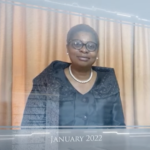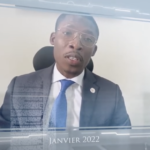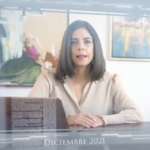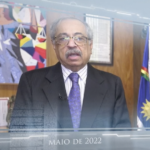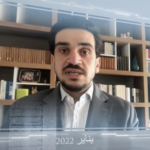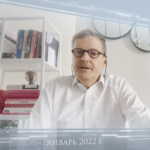Testimonials
When Columbia Global Freedom of Expression (GFoE) was launched in 2014, the leading concerns were violence against journalists, arbitrary imprisonment, government surveillance, and censorship. To these initial challenges add cyberbullying, Internet blockages and restrictions, spyware, and disinformation campaigns. These new threats are emerging against the backdrop of growing authoritarianism in many parts of the world. In response, GFoE has stepped up its efforts to defend freedom of expression. Below are testimonials from our network of experts, judges and legal advocates who believe GFoE is a critical resource helping to increase adherence to international legal standards and protect fundamental rights.
EXPERT TESTIMONIALS
In her testimonial about GFoE, the Honorable Lady Justice Stella Anukam from the African Court of Human & Peoples’ Rights mentioned the urgent need for judges to have useful information to defend freedom of expression and referred to our project, stating: “The Columbia University Global Case Law Database which provides access to summaries of landmark decisions as well as the latest decisions from national and regional courts around the world. It’s an invaluable resource.”
When discussing the importance of the Columbia Global Freedom of Expression initiative, Jean Aloise Ndiaye, director of cabinet of the First President for the Supreme Court of Senegal, noted that the Court “[has] already had to experiment with [the GFoE Case Law Database] during the workshop organized by UNESCO in Nairobi in February. We have become aware of the importance of this resource… We have decided in Senegal to share this tool with the lower courts through internal workshops that will focus on freedom of expression so that judges are better equipped to provide answers and know the international standards in terms of freedom of expression.”
Daniela Salazar Marín, judge & vice president of the Constitutional Court of Ecuador, when referring to the importance of the database, highlighted the present-day state of freedom of expression in her testimonial: “In this rapidly changing environment, freedom of expression presents old and new challenges and we must be prepared to respond effectively.” For this reason, she recommended the use of our tool.
“As a magistrate for more than 40 years,” said Minister Og Fernandes, judge from the Superior Tribunal of Justice of Brasil, “I recognize that, for a more efficient delivery of justice and connected with social reality, it is essential that legal operators are always up to date with international and comparative jurisprudence on the most diverse topics.” For this reason, he continued, the GFoE Case Law Database is a pertinent tool that can and should be used by those defending freedom of expression.
In the same vein, Hicham Kantar, judge from the Lebanese Judiciary, agreed that for the judiciary, “keeping abreast of developments in modern and comparative jurisprudence on the various issues we are looking at is an essential part of our work,” and he pointed to the GFoE Case Law Database as the perfect tool that allows judicial actors to do so.
Finally, in addition to judges, Andrei Richter, professor at Comenius University in Bratislava and former director of the Office of the OSCE Rep on Freedom of the Media, added that specialists and other legal experts outside of the courts can also access the Database to stay up to date on current trends in freedom of expression jurisprudence.
“The Columbia University global case law database which provides access to summaries of landmark decisions as well as the latest decisions from national and regional courts around the world. It’s an invaluable resource.”
– Honorable Lady Justice Stella Anukam, African Court of Human & Peoples’ Rights

